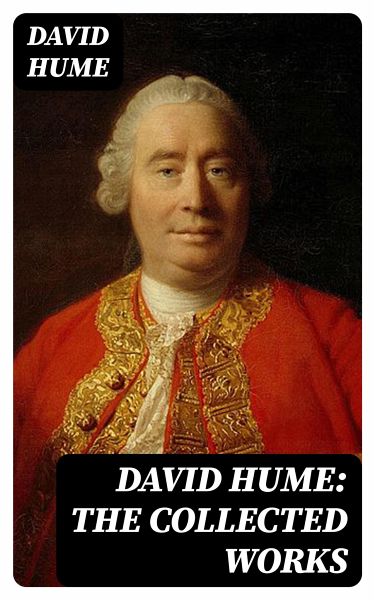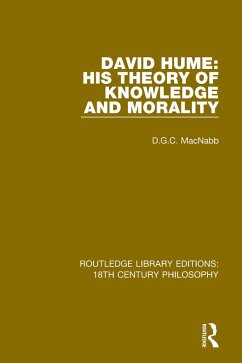
David Hume: The Collected Works (eBook, ePUB)

PAYBACK Punkte
0 °P sammeln!
David Hume: The Collected Works serves as a comprehensive repository of Hume's influential philosophical writings, encompassing his groundbreaking treatises on empiricism, skepticism, and human psychology. This anthology includes seminal works such as "A Treatise of Human Nature" and "An Enquiry Concerning Human Understanding," where Hume's literary style is marked by clarity and elegance, enhancing the accessibility of his often complex ideas. Set against the backdrop of the Enlightenment, the collection weaves together Hume's critique of rationalism and moral philosophy, presenting an intric...
David Hume: The Collected Works serves as a comprehensive repository of Hume's influential philosophical writings, encompassing his groundbreaking treatises on empiricism, skepticism, and human psychology. This anthology includes seminal works such as "A Treatise of Human Nature" and "An Enquiry Concerning Human Understanding," where Hume's literary style is marked by clarity and elegance, enhancing the accessibility of his often complex ideas. Set against the backdrop of the Enlightenment, the collection weaves together Hume's critique of rationalism and moral philosophy, presenting an intricate tapestry that interrogates the limitations of human reason and the nature of belief. David Hume (1711-1776) was a Scottish philosopher, historian, and economist whose intellectual pursuits were deeply embedded in the spirit of the Scottish Enlightenment. His experiences during this tumultuous period, alongside his associations with contemporaneous thinkers, fueled his exploration of the relationship between human experience and knowledge. Hume's insistence on empirical observation as the foundation of understanding emerged through both personal reflections and rigorous scholarly engagement, leading to innovative insights that reshaped Western philosophy. This collected volume is essential for any student of philosophy, ethics, or cognitive science, providing a foundational understanding of Hume's contributions that continue to resonate in contemporary debates. It offers readers an unparalleled opportunity to engage with the texts that have influenced generations and invites them to explore the complexities of human nature through the lens of one of history's most important thinkers.
Dieser Download kann aus rechtlichen Gründen nur mit Rechnungsadresse in A, B, BG, CY, CZ, D, DK, EW, E, FIN, F, GR, H, IRL, I, LT, L, LR, M, NL, PL, P, R, S, SLO, SK ausgeliefert werden.













